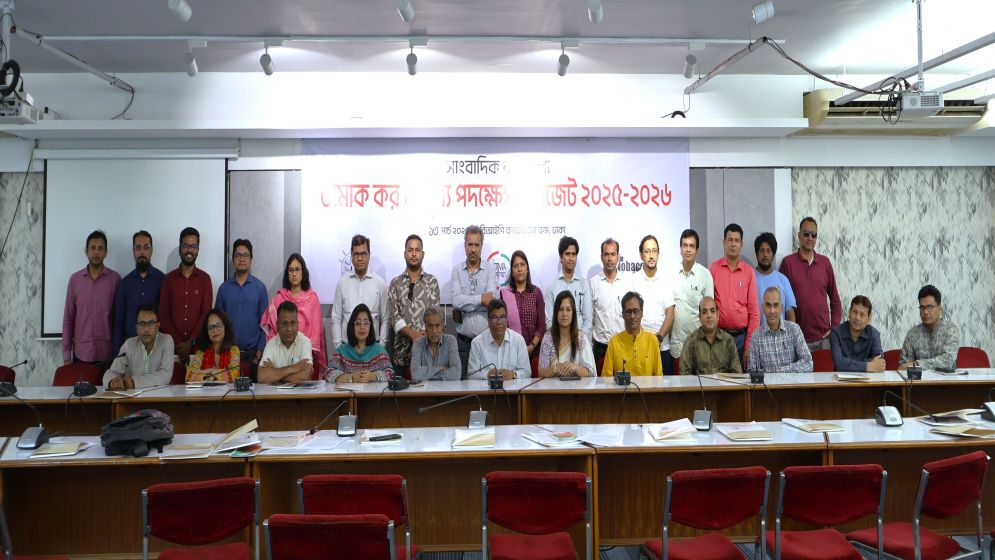Experts propose merging cigarette price tiers to improve tobacco control in FY 2025-26 budget

Photo courtesy: Progga
The existing four-tier pricing structure for cigarettes in Bangladesh—comprising low, medium, high, and premium categories—has been deemed ineffective in addressing tobacco control, as it fails to discourage consumption, particularly among the youth and lower-income groups.
The narrow price gap between low and medium-tier cigarettes has allowed consumers to easily switch between these categories, undermining efforts to curb tobacco use and increase government revenue.
At a two-day workshop titled "Tobacco Tax and Price Measures: Budget FY 2025-26," held at the BIP Conference Room in Dhaka on March 12-13, 2025, experts suggested that merging the low and medium price tiers into a single category could help close this loophole.
This would reduce the number of price tiers to three, potentially increasing the effectiveness of price and tax measures aimed at reducing tobacco consumption and boosting government revenue.
The workshop was attended by 50 journalists from various print, television, and online media outlets. The event was jointly organized by PROGGA (Knowledge for Progress) and ATMA (Anti-Tobacco Media Alliance).
Participants pointed out that tobacco products in Bangladesh are relatively inexpensive compared to essential commodities.
An analysis of retail prices for essential goods in seven metropolitan cities (Dhaka, Chattogram, Rajshahi, Khulna, Sylhet, Barisal, and Rangpur) from July 2021 to July 2023 revealed significant price hikes for basic items like sugar (89%), potatoes (87%), and pangash fish (47%).
In contrast, the price increase for cigarettes across all tiers ranged from only 6 to 15 percent. This price disparity is encouraging consumption, especially among the youth and the poor, who are increasingly turning to affordable, harmful tobacco products.
The proposals presented during the workshop for the FY 2025-26 national budget are as follows: The low and medium tier should be merged into one and prices for 10 sticks of the merged tier should be set at BDT 90.
The retail price of high-tier cigarettes should be kept at existing BDT 140 for 10 sticks. The prices for 10 sticks of premium cigarettes should be raised to BDT 190. The supplementary duty (SD) on all cigarette tiers should be the existing 67 percent.
For non-filtered bidi, the retail price should be BDT 25 for 25 sticks. In the case of filtered bidi, the retail price for 20 sticks should be set at BDT 20. Both prices should be followed by a 45 percent SD.
Regarding smokeless tobacco, the retail price for 10 grams of jarda and gul should be BDT 55 and BDT 30, followed by 60 percent SD.
The budget proposals also suggest retaining 15 percent VAT on the retail prices of tobacco products and continuing the existing 1 percent health development surcharge (HDS).
In support of the proposals, speakers informed that budget proposals placed by anti-tobacco organizations, if realized, can help the government raise a staggering BDT 20,000 crore in additional revenue, which will come in handy in reaching revenue targets and improve public health.
Implementation of such proposals, in the long run, will also help prevent the premature deaths of 1.7 million Bangladeshis, including nearly 900,000 youths.
The workshop featured discussions from various experts, including Mr. Kawser Rahman, City Editor at The Daily Janakantha; Md. Sazzadur Rahman, Deputy Editor at The Business Standard; Mortuza Haider Liton, Convener of ATMA; Nadira Kiron and Mizan Chowdhury, Co-conveners of ATMA; ABM Zubair, Executive Director of PROGGA; and Md. Hasan Shahriar, Head of Tobacco Control at PROGGA.
—

